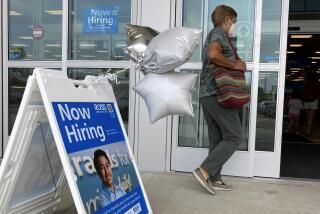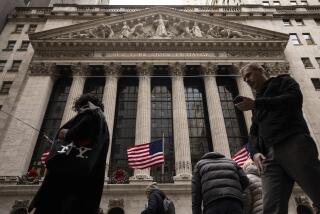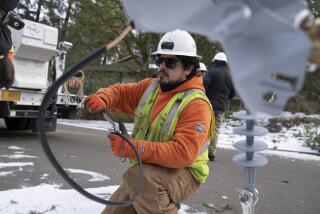Recession may not be over yet, panel says
- Share via
The panel of economists that dates turning points in the economy is saying what many Americans have been feeling: This recession may not be over yet.
That was essentially the message from a brief statement released Monday by the National Bureau of Economic Research, the nonprofit group that officially certifies the start and end of U.S. business cycles.
The seven-member committee said that it “would be premature” to set a date marking the end of the last economic contraction and the beginning of an expansion.
Although recent economic data have been positive, its statement said, “many indicators are quite preliminary at this time and will be revised in coming months.”
One big factor in its decision to hold off on declaring the recession’s end may have been the near-double-digit unemployment rate that still plagues the economy. The weak labor market has prompted many American workers to ask, “What recovery?”
“Basically, NBER is saying the coast isn’t clear yet,” said Mark Zandi, chief economist at Moody’s Economy .com.
That doesn’t diminish the fact that Zandi and other leading economists believe that the latest recession ended sometime last summer. And the NBER is still likely to put its stamp of agreement on that view in the near future.
The economic research group, based in Cambridge, Mass., previously called the start of the recession as December 2007 -- a date reaffirmed in Monday’s statement.
The NBER commonly announces its determination of recession dates a year or more after the actual turning point, said Oscar Jorda, an associate professor of economics at UC Davis, in a February article for the Federal Reserve Bank of San Francisco. Its “mission is not to serve as an early-warning system but to classify economic activity for the historical record,” he wrote.
Yet the timing of Monday’s statement makes it more than just academic. “It might influence policy debate and discussion a little,” Zandi said, noting ongoing arguments in Washington and elsewhere over whether to provide additional economic stimulus.
The NBER’s recession-dating committee, which convened Thursday, doesn’t have a formal calendar of meetings. The catalyst for last week’s four-hour meeting was the NBER’s annual economic conference that brought the panel members to Cambridge, said the research group’s spokeswoman, Donna Zerwitz.
It wasn’t unprecedented for the committee to issue a release in which no decision on a turning point was made, Zerwitz said. “Now more than ever . . . there’s clearly a lot of interest in this subject,” she said in explaining why she and others urged the panel to make a statement.
Some of the committee’s seven members have publicly stated their belief that the recession already was over, but the panel seeks a consensus before issuing a decision. And the depth and duration of the latest downturn, which some have termed the Great Recession, have made the task more difficult.
The nation’s gross domestic product, the broadest measure of economic activity, turned positive in the second half of last year after four straight quarters of declines. Some people consider a recession two or more consecutive quarters of GDP contraction, but the NBER panel considers other economic indicators as well, including real income and employment. Those measures, among others, paint a picture of a more fragile economy.
Earlier this year, the Labor Department said the economy lost 8.4 million jobs since the recession began. That was about 1 million more than officials had previously estimated. And those losses, based on more recent and complete employer records, are expected to be revised even higher in the coming months, economists said.
In March, employers added 162,000 jobs, but 48,000 were temporary ones created by the Census Bureau.
The jobless rate has been stuck at 9.7% for the last three months.
More to Read
Inside the business of entertainment
The Wide Shot brings you news, analysis and insights on everything from streaming wars to production — and what it all means for the future.
You may occasionally receive promotional content from the Los Angeles Times.











